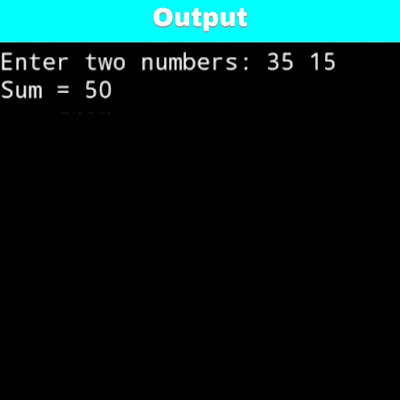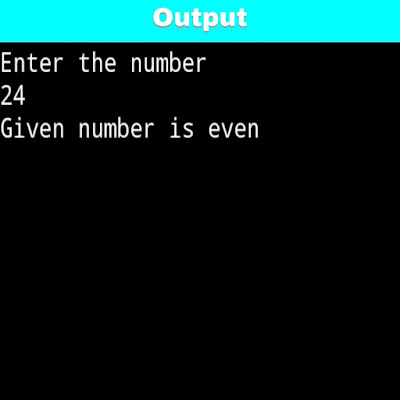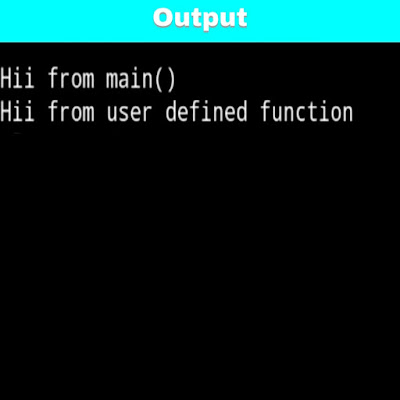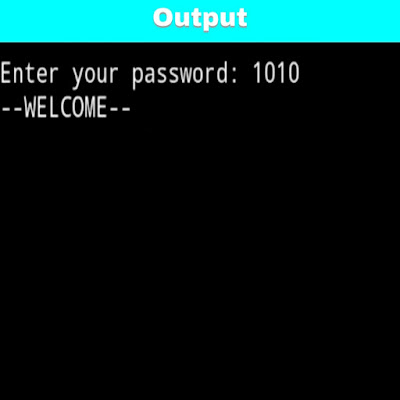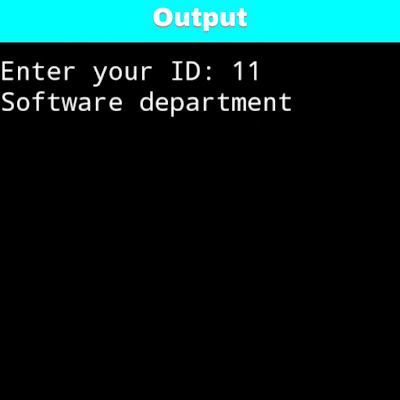Ex: Write a C program to print sum of two numbers using function. How to write a C program to print sum of two numbers using function. C program to print sum of two numbers using function.
Input from user:
Enter two numbers: 35 15
Expected output:
Sum = 50
1. First declare function give it meaningful name add().
2. Inside the main() accept input (two numbers) from user, declare two varibles say no1 & no2 .
3. inside the sum pass no1 and no2 to the function using: sum= add(no1, no2);
4. After that print sum.
5. In the body of add() add n1 and n2 and store it some varible say sum.
After that return sum.
C program to print sum of two numbers using functions:
#include<stdio.h>
int add(int n1,int n2); /*function declaration*/
int main()
{
/*Variable declaration*/
int no1,no2, sum;
/*Input two numbers from user*/
printf("Enter two numbers: ");
scanf("%d%d", &no1,&no2);
sum=add(no1, no2);
/*Print value of sum*/
printf("Sum = %d",sum);
return 0;
}
int add(int n1,int n2)
{
int sum= n1+n2;
/*Return value of sum to the main*/
return sum;
}
Above program shows the following output:
Input from user:
Enter two numbers: 35 15
Expected output:
Sum = 50
Step by step logic of the given program:
1. First declare function give it meaningful name add().
2. Inside the main() accept input (two numbers) from user, declare two varibles say no1 & no2 .
3. inside the sum pass no1 and no2 to the function using: sum= add(no1, no2);
4. After that print sum.
5. In the body of add() add n1 and n2 and store it some varible say sum.
After that return sum.
C program to print sum of two numbers using functions:
#include<stdio.h>
int add(int n1,int n2); /*function declaration*/
int main()
{
/*Variable declaration*/
int no1,no2, sum;
/*Input two numbers from user*/
printf("Enter two numbers: ");
scanf("%d%d", &no1,&no2);
sum=add(no1, no2);
/*Print value of sum*/
printf("Sum = %d",sum);
return 0;
}
int add(int n1,int n2)
{
int sum= n1+n2;
/*Return value of sum to the main*/
return sum;
}
Above program shows the following output:

